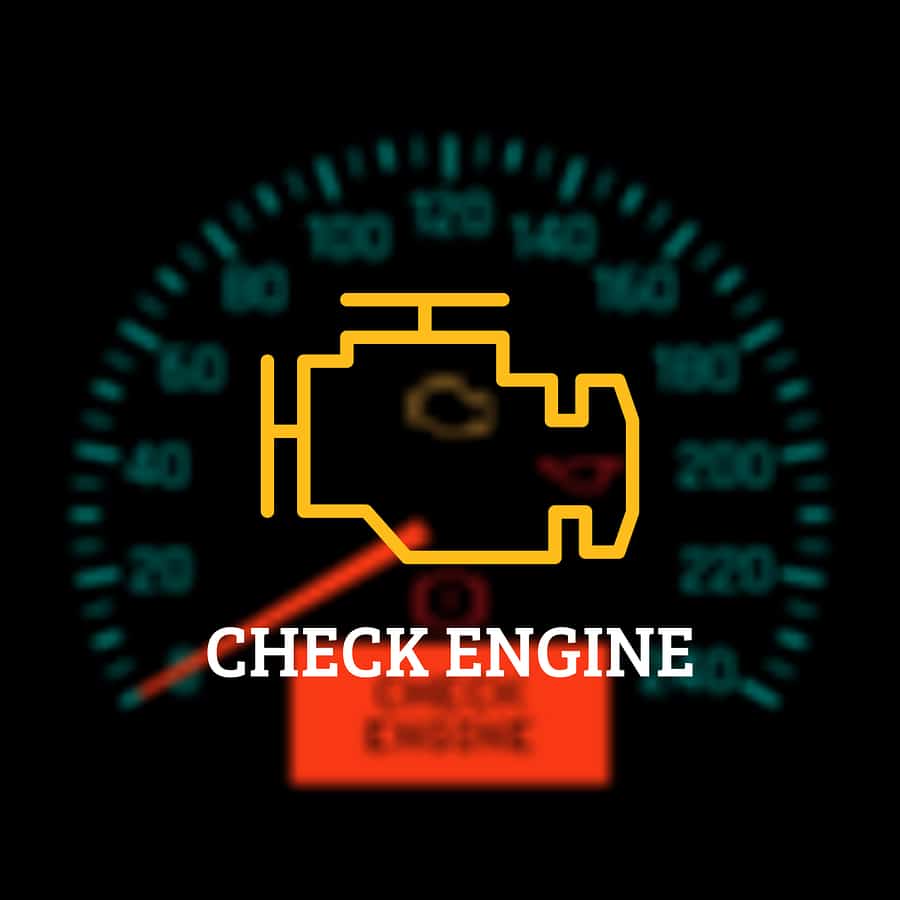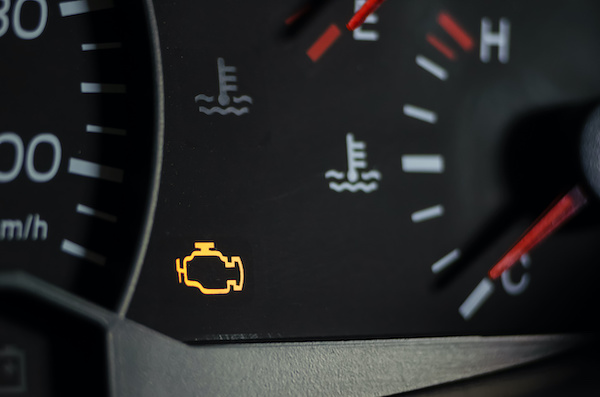If you’ve ever experienced your car check engine light blinking and then stopping, you know how concerning and confusing it can be. Understanding what this means and how to address it can save you from potential vehicle damage and costly repairs.
Understanding the urgency of a blinking check engine light is crucial for any driver. This alarming signal means that your vehicle’s engine is experiencing issues that could escalate if not addressed promptly. The light generally blinks when there’s a significant problem affecting the engine’s performance or the emissions system, and it often points to misfires that allow unburned fuel to dump into the exhaust system.
This can raise the temperature of the catalytic converter, risking damage to this expensive component. Taking swift action by consulting a professional mechanic can prevent further damage to your vehicle, ensuring safety and preserving the longevity of your car’s engine. Always treat a blinking check engine light as a red flag and have your vehicle diagnosed as soon as possible.

Credit: www.hollenshades.com
Recognizing The Blinking Alert
Is your car’s check engine light blinking? This is a warning. Your car tells you something is wrong. Let’s understand this blinking alert.
A blinking check engine light is serious. It means stop the car soon. This light blinks only for big problems. It’s different from a steady light. A steady light means check the car soon. But blinking means the problem is urgent.
Common Causes For The Flashing Light
Several issues can make the light blink. Here are common ones:
- Misfiring engine: This means the engine does not work smoothly.
- Bad spark plugs: Spark plugs start your car’s engine. Bad ones can cause blinking.
- Loose gas cap: Sounds simple, but it can trigger the light.
- Faulty catalytic converter: This part protects the environment. It needs to work well.
Immediate Actions To Take
If the light blinks, do these things right away:
- Stop driving: Find a safe place. Turn off the car.
- Check the gas cap: Sometimes, tightening it fixes the issue.
- Call for help: Use your phone. Call a mechanic or roadside assistance.
Remember, a blinking light means act fast. It protects your car and you.
Diagnostic Trouble Codes (dtc)
When your car’s check engine light blinks, it’s scary. Don’t worry. Your car has a brain. This brain talks through codes. These are Diagnostic Trouble Codes (DTC). They tell us what’s wrong.
Using An Obd-ii Scanner
First, we need an OBD-II Scanner. It’s a tool. It reads codes from your car’s brain. Here’s how to use it:
- Turn off your car.
- Find the OBD port. It’s under the dash.
- Plug in the scanner.
- Turn on the car. Just the electronics, not the engine.
- Read the scanner. It shows codes.
Interpreting The Codes
Now, we have codes. But what do they mean? Each code has a letter and numbers. Like P0301. Here’s a simple guide:
- P means powertrain. It’s about engine or gearbox.
- C is for chassis. Think wheels or brakes.
- B talks about the body. Like windows or seats.
- U is network. It’s about wires talking.
Numbers tell more. The first number after the letter shows if it’s a generic code or not. 0 means yes, generic. 1 means no, it’s specific to your car.
The last three numbers point to the exact problem. Like 301 means cylinder 1 is misfiring.
Now, you know what’s wrong. You can fix it or ask for help.
Simple Diy Fixes
Seeing your car’s check engine light blinking can be scary. You might think it’s a big problem. But, sometimes, you can fix it yourself. Here are some easy fixes you can try at home.
Tightening The Gas Cap
A loose gas cap can make your check engine light blink. It’s an easy fix:
- Turn off your car.
- Find the gas cap. It’s where you put fuel in your car.
- Turn the gas cap until you hear it click. That means it’s tight.
- Start your car again. See if the light turns off.
If the light stays on, the gas cap might be broken. You might need a new one.
Replacing Spark Plugs
Old spark plugs can also make the light blink. They help your car start. Changing them can help.
- Find your car’s manual. It will tell you where the spark plugs are.
- Turn off your car. Make sure it’s cool.
- Take out the old spark plugs. Use a special tool called a spark plug socket.
- Put in new spark plugs. Don’t make them too tight.
- Start your car. Check the light.
If you’re not sure, ask someone who knows cars to help.

Credit: www.centralaveauto.com
Common Culprits Behind The Flash
Seeing your car’s check engine light blinking can be scary. This light warns us when something is not right with the car. Let’s talk about common reasons why this happens.
Faulty Ignition Coils
Ignition coils help start your car. They send power to the engine’s spark plugs. When they don’t work right, your car might not start well. It can also make the engine light blink.
- Signs: Car not starting, engine misfiring, poor fuel economy.
- Fix: Replace bad ignition coils.
Malfunctioning Oxygen Sensor
The oxygen sensor checks the air and fuel mix in your car. It makes sure your car runs clean and well. A bad sensor can send wrong data. This makes the engine light blink.
- Signs: Bad gas mileage, rough engine run.
- Fix: Replace the oxygen sensor.
Both these parts are key for a smooth ride. If the engine light blinks, check these parts first.
Electrical Issues And Solutions
When the check engine light blinks, it’s a call for attention. Electrical issues in cars are common. They can lead to serious problems. Yet, these problems have solutions. This section will guide you through simple fixes. Let’s get your car back on the road.
Checking For Loose Wires
Loose wires can cause the check engine light to blink. A thorough check is crucial. Follow these steps:
- Turn off your car.
- Open the hood safely.
- Look for wires that are not secure.
- Check wire connections on the engine.
- Push any loose wires into place.
- If unsure, consult a professional.
Battery Health And Connections
The battery is the heart of a car’s electrical system. Poor battery health can trigger the engine light. Check your battery by:
- Inspecting the battery for corrosion.
- Ensuring connections are tight.
- Testing the battery’s voltage.
- Replacing the battery if it’s old or weak.
Regular maintenance prevents electrical issues. It keeps your car reliable. Remember, safety first. Always disconnect the battery before working.

Credit: www.reddit.com
Car check engine light blinking then stops
A blinking check engine light indicates a severe engine misfire, demanding immediate attention. Ignoring this warning can lead to costly damage.
Common Causes of a Blinking Check Engine Light
- Misfires: One of the most common causes is engine misfires. A misfire occurs when one or more of your engine’s cylinders fail to produce power.
- Catalytic Converter Damage: A blinking light might indicate potential damage to your catalytic converter, which can be caused by unburned fuel entering the exhaust system.
- Ignition System Problems: Faulty ignition coils or spark plug wires can lead to irregular combustion, resulting in a blinking check engine light.
- Fuel System Issues: Problems with the fuel system, such as a clogged fuel injector or a failing fuel pump, can trigger the light to blink.
What to Do When Your Check Engine Light Blinks
- Reduce Speed and Load: If you’re driving and the check engine light starts blinking, reduce your speed and try to decrease the load on the engine. This can help prevent further damage.
- Check for Obvious Issues: Pull over safely and check for any obvious issues like loose fuel caps, which can sometimes trigger the light.
- Seek Professional Help: It’s crucial to get your vehicle checked by a professional mechanic as soon as possible. They can diagnose the exact cause using specialized diagnostic tools.
Why Did My Check Engine Light Stop Blinking?
Sometimes, the check engine light may blink for a while and then stop. This can happen for several reasons:
- Intermittent Issues: The problem might be intermittent, such as a temporary misfire that resolved itself.
- Self-Correction: Modern cars have onboard computers that can sometimes correct minor issues, causing the light to stop blinking.
- Faulty Sensors: In some cases, a faulty sensor might cause the light to blink and then stop, even if there is no real issue.
Preventive Measures
- Regular Maintenance: Regularly servicing your vehicle can help prevent many issues that cause the check engine light to blink.
- Monitor Engine Performance: Pay attention to how your car feels and sounds. Any unusual noises or performance issues should be checked immediately.
- Use Quality Parts: When replacing parts, use high-quality components to ensure the longevity and performance of your engine.
A blinking check engine light is a sign that something is wrong with your car’s engine or emissions system and should not be ignored. Understanding the potential causes and knowing what steps to take can help you address the issue promptly and avoid costly repairs.
Preventive Measures To Avoid Future Flashes
The check engine light blinking can be alarming. The key is to avoid it from happening again. Here are steps to prevent future flashes.
Regular Maintenance Tips
Car health starts with regular care. Follow these tips:
- Check the oil level monthly. Change it as recommended.
- Replace air filters. A clean filter improves engine performance.
- Keep tires inflated. Proper pressure saves fuel and prevents wear.
- Get tune-ups. They keep the engine running smoothly.
Follow the service schedule in the car’s manual.
When To Seek Professional Help
Some car problems need an expert’s touch. Do not ignore these signs:
- Engine light stays on. It means something is not right.
- Strange noises. Knocking or hissing sounds are bad signs.
- Smoke from the hood. It could mean overheating or a leak.
- Car stalling. This could be a sign of a serious issue.
Visit a mechanic if you notice these. Early help can save money and stress.
When To Stop Driving Immediately
Seeing your car’s check engine light blinking can be alarming. It often signals a severe problem. Knowing when to stop driving is crucial. Immediate action can save your engine and keep you safe.
Signs Of Serious Engine Trouble
- Engine light flashing repeatedly
- Loud noises from the engine bay
- Car jerking or stalling
- Smoke from under the hood
- Oil or coolant leaks on the ground
These signs suggest critical issues. They require urgent attention. Delay can lead to costly repairs.
Safety And Legal Considerations
Driving with a blinking engine light is risky. It can also be illegal. This table shows key points:
| Safety Risk | Legal Issue |
|---|---|
| Possible engine failure | Driving a faulty vehicle |
| Increased accident chance | Penalties for unsafe driving |
| Breakdown in risky locations | Violations of vehicle codes |
Stop driving to protect yourself and others. Check local laws to avoid legal trouble.
Frequently Asked Questions
Can I Drive My Car With The Check Engine Light Blinking?
No, driving with a blinking check engine light can indicate a severe issue. It’s best to stop safely and seek professional help immediately.
What Is The Most Common Cause Of A Flashing Check Engine Light?
A flashing check engine light often indicates a severe engine misfire, allowing unburned fuel to dump into the exhaust system.
Why Is My Check Engine Light Blinking And My Car Shaking?
A blinking check engine light and car shaking often indicate a severe misfire, causing potential damage to the catalytic converter. Immediate professional diagnosis is recommended.
Does A Flashing Check Engine Light Mean Transmission Trouble?
A flashing check engine light typically indicates a severe engine issue, not necessarily transmission trouble. It’s urgent to have your vehicle diagnosed by a professional soon.
Conclusion
Dealing with a blinking engine light can be daunting, but prompt action is vital. Remember, this flashing signal is your car’s cry for help. Address it quickly to avoid further damage and ensure your vehicle’s longevity. Schedule a diagnosis soon, and drive with confidence, knowing your car is in top condition.
